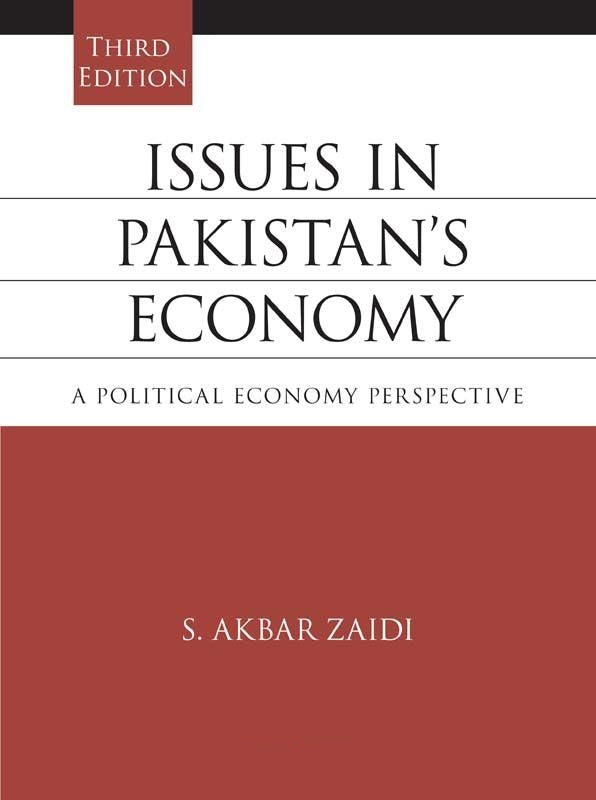Issues in Pakistan's Economy
Issues in Pakistan's Economy
Couldn't load pickup availability
Writer: S. Akbar Zaidi
Pages: 858
Category: English Books, Political Books
This book is about understanding Pakistan’s structural transformation over six decades in a political economy framework. The author examines how and where such transformations have taken place in the economy, society, in class and gender relations, in manifestations of consumerism and culture, and in other ways. He assesses Pakistan's trajectory of economic and political development and focuses on an economic and social history of Pakistan, using a political economy framework to examine the nature of this structural transformation. The book follows the narrative of the evolution of Pakistan's social, economic and even political dispensation over many decades, highlighting key developments and events. As has happened so many times in Pakistan’s history, events with unintended consequences have shaped developments. Yet, social and economic change has also been somewhat anticipated and predictable, giving rise to relatively more certain outcomes. The immense growth of urban populations, of a middle class, and of a buoyant informal sector, alongside the breakdown of state authority and state institutions, has been unfolding almost expectantly. The previous trend of the 'urbanization of everybody', seems to have morphed into an 'urbanization with informalization', with the co-movements of urbanization and informal relations of production and exchange perhaps dominating social and political interaction. What this means for subsequent developments remains uncertain.
Issues in Pakistan’s Economy: A Political Economy Perspective will interest serious scholars of Pakistan's economic history and its developments, as well as those who seek to understand how social and economic processes have an impact on numerous outcomes and forms of structural transformation, and how, in a political economy perspective, state and society evolve.
S Akbar Zaidi is a prolific political economist. Apart from his interest in political economy, he also has great interest in development, the social sciences more generally, and increasingly, in History. He has written over seventy-five academic articles in international journals and as chapters in books, as well as numerous books and monographs. His recent book, Military, Civil Society and Democratization in Pakistan (2012), examines the political economy of the Musharraf regime. His earlier books include The New Development Paradigm: Papers on Institutions, NGOs, Gender and Local Government (OUP, 1999), and Pakistan’s Economic and Social Development: The Domestic, Regional and Global Context (2004). He taught at Karachi University and at Johns Hopkins University, and is currently a Visiting Professor at Columbia University, New York, where he has a joint appointment at the School of International and Public Affairs (SIPA), and at the Department of Middle Eastern, South Asian, and African Studies (MESAAS).


